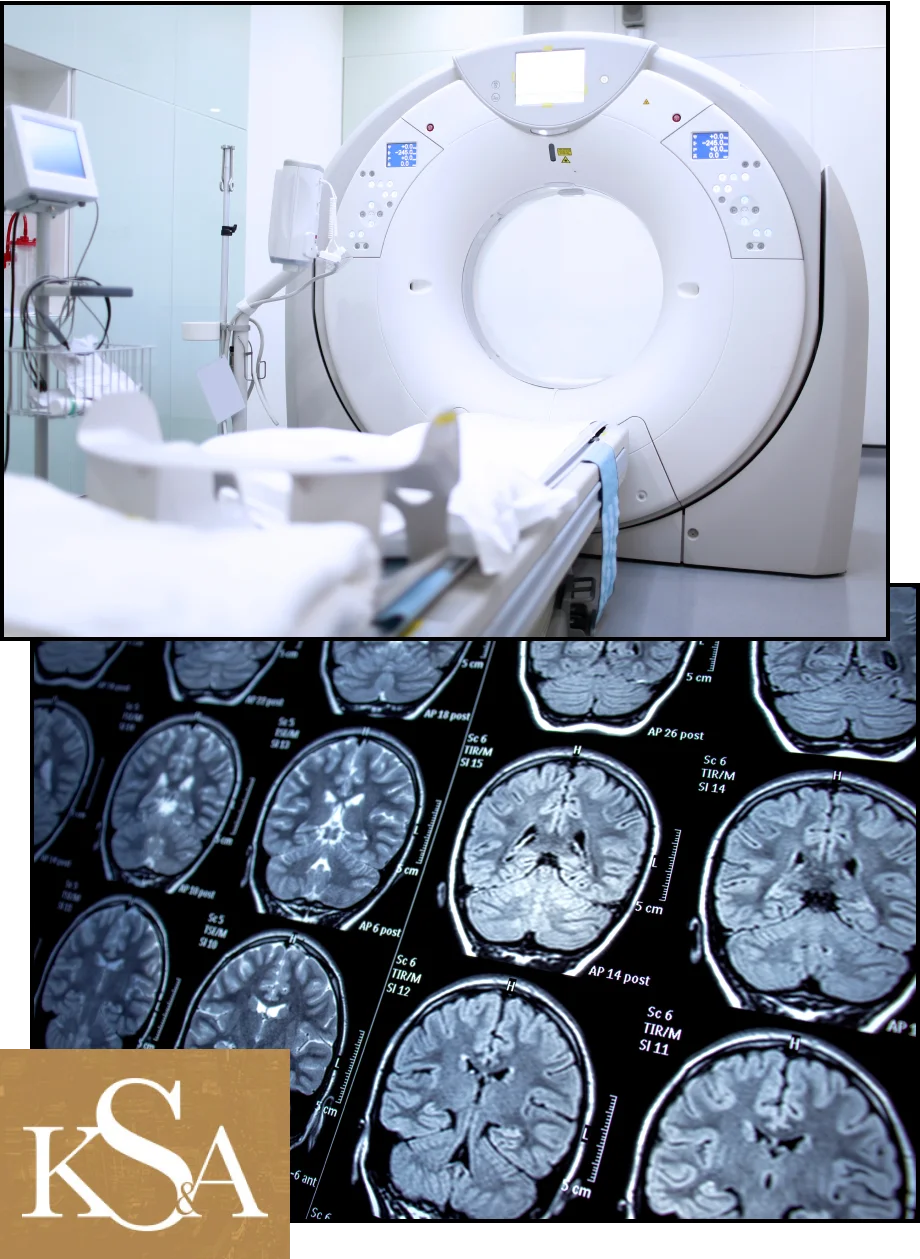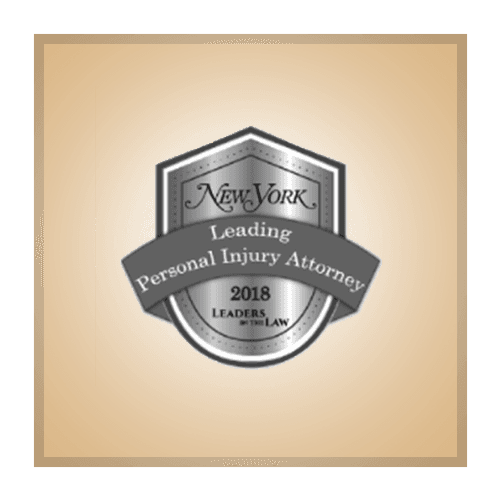New York Brain Injury Attorney
Representing traumatic brain injury victims & their loved ones
A traumatic brain injury (TBI), also known as acquired brain injury, is a condition that can affect every aspect of a person’s life. Whether caused by a sudden blow to the head, a fall, or a violent jolt, TBIs can lead to serious cognitive, emotional, and physical impairments. While medical advancements have improved outcomes for many patients, some injuries may still result in permanent disabilities requiring lifelong care and rehabilitation.
If you or a loved one has been involved in an accident and is exhibiting symptoms such as headaches, dizziness, memory loss, or cognitive impairment, seek medical attention immediately. Then, reach out to a reputable brain injury law firm to understand your legal rights and explore your options for compensation.
At Keith D. Silverstein & Associates, we are committed to helping victims of TBIs and their families fight for justice. As a dedicated brain injury law firm, we understand the physical, emotional, and financial toll these injuries bring. Our experienced New York brain injury lawyer will guide you through every step of the legal process, providing the support and advocacy you deserve.
Your initial consultation is free. Call (646) 813-3922 or contact us online today to learn more.
What Is a Traumatic Brain Injury?
A traumatic brain injury occurs when a sudden, violent blow, jolt, or penetrating injury disrupts normal brain function. While some TBI patients recover fully, others may experience lasting cognitive, physical, or emotional challenges.
- Concussion – A concussion is a mild form of TBI that typically results from a blow to the head or a sudden acceleration or deceleration of the head. It may cause temporary loss of consciousness, confusion, and other cognitive impairments.
- Contusion – Direct impact on the head can damage blood vessels in the brain, leading to a contusion. This localized bleeding can cause swelling and increased intracranial pressure.
- Coup-contrecoup injury – In this type of injury, the brain is injured at the site of impact (coup) and on the opposite side of the brain due to rebound effects (contrecoup). This can occur when the force is significant enough to cause the brain to move within the skull.
- Diffuse axonal injury (DAI) – DAI involves widespread damage to nerve fibers (axons) in the brain, usually resulting from strong rotational forces. It can lead to widespread brain damage and neurological impairment.
- Penetrating injury – This type of TBI occurs when an object penetrates the skull and enters the brain. Penetrating injuries often cause localized damage and may require surgical intervention to remove the object.
- Second-impact syndrome – When a person sustains a second traumatic brain injury before the first has healed, they are at risk for second-impact syndrome. This dangerous condition can lead to rapid and severe swelling of the brain, which is a medical emergency.
TBIs are classified as mild, moderate, or severe based on the intensity of symptoms and duration of altered consciousness. Regardless of classification, all TBIs require immediate medical evaluation and treatment to prevent worsening symptoms.
Symptoms of Traumatic Brain Injury
Anyone who experiences a TBI will have different symptoms depending on the type, severity, and location of the injury. Some symptoms appear immediately, while others may develop over hours or even days. Recognizing these signs is essential for early intervention.
Mild TBI symptoms
Mild TBIs may not always be immediately apparent but can still cause significant discomfort and temporary cognitive issues. These symptoms often resolve within days or weeks but can persist longer in some cases. Common mild TBI symptoms include:
- Headaches – persistent or throbbing pain in the head, sometimes worsening with movement
- Dizziness – a feeling of unsteadiness, lightheadedness, or instability
- Nausea and vomiting – an unsettled stomach that may or may not lead to vomiting
- Light and noise sensitivity – increased discomfort in bright or noisy environments
- Difficulty concentrating – trouble focusing, making decisions, or processing information
- Memory issues – short-term memory lapses such as forgetting conversations or recent events
- Fatigue – persistent tiredness or lack of energy
- Mood swings – sudden emotional changes, including irritability, anxiety, or sadness
- Blurred vision – difficulty focusing or experiencing double vision
- Ringing in the ears (tinnitus) – persistent buzzing or ringing sounds
- Insomnia or sleep disturbances – difficulty falling asleep, staying asleep, or experiencing excessive drowsiness
Moderate to severe TBI symptoms
Moderate and severe TBIs often lead to more pronounced, long-lasting symptoms that can result in significant impairments. These injuries require immediate medical attention to prevent further complications. Here are examples of moderate to severe TBI symptoms:
- Persistent headaches – severe and ongoing head pain that does not subside with rest or medication
- Repeated vomiting or nausea – frequent episodes indicating increased pressure on the brain
- Seizures or convulsions – uncontrollable shaking or jerking movements, a sign of severe brain trauma
- Slurred speech – difficulty forming words or speaking coherently
- Coordination problems – trouble with balance, walking, or motor skills
- Profound confusion – disorientation and inability to understand surroundings or situations
- Loss of consciousness – blacking out for several minutes, hours, or even days
- Weakness or numbness in limbs – reduced strength or tingling sensations in the arms, legs, hands, or feet
- Significant memory loss – difficulty recalling past events, people, or even one's own identity in extreme cases
- Extreme agitation or aggression – uncharacteristic irritability, frustration, or violent outbursts
- Dilated pupils or uneven pupil size – a sign of severe brain damage that requires immediate attention
- Coma or vegetative state – extended unconsciousness with minimal to no response to stimuli
Work With Keith D. Silverstein & Associates
We Help The Injured
"*" indicates required fields
How We Can Help
Common Causes of Brain Injuries
Any serious accident or traumatic event can lead to a brain injury. According to the Centers for Disease Control and Prevention, automobile accidents are among the leading causes, alongside falls and other accidents.

Common causes of traumatic brain injuries include:
- Car accidents
- Pedestrian accidents
- Recreation accidents
- Workplace accidents
- Bicycle accidents
- Sports accidents
- Construction accidents
- Truck accidents
- Slip and falls
- Drownings
- Motorcycle accidents
- Falls from height
- Diving accidents
- Violence
These incidents can cause direct head trauma or oxygen deprivation, leading to severe brain damage and neurological impairment. The impact from car accidents, falls, or sports injuries can cause the brain to collide with the skull, resulting in bruising, bleeding, and damage to nerve fibers. In drownings or choking incidents, oxygen deprivation can lead to widespread brain cell death.
It’s crucial to recognize the potential risks in these situations and take precautions to prevent TBIs. If a TBI occurs, seeking immediate medical attention is vital for proper diagnosis and treatment.
If another party’s negligence caused your brain injury, you have the right to seek legal action against them. A brain injury law firm can help you file a personal injury claim so you can seek the financial support needed to cover both immediate and long-term care, including ongoing therapy and assistive treatments.
Diagnosing
a Traumatic Brain Injury
- Physical medical exams to assess overall health and injury symptoms
- Neurological assessments to evaluate brain function, reflexes, coordination, and cognitive abilities
- Imaging tests, such as MRIs and CT scans, to detect swelling, bleeding, or structural damage
Unfortunately, many TBI cases are often misdiagnosed or go undetected, especially if symptoms are mild or delayed. Even advanced imaging tests may fail to reveal subtle brain injuries, leading to a lack of proper treatment.

Types of Damages in Brain Injury Cases
Economic damages in TBI cases
Victims of traumatic brain injuries may be entitled to receive compensation for the following types of economic damages:
Medical expenses
compensation for past, current, and future medical costs, including emergency care, hospital stays, surgeries, rehabilitation, and ongoing treatments
Rehabilitation costs
coverage for physical, occupational, and cognitive therapy to aid recovery and improve quality of life
Lost wages and earning capacity
financial recovery for income lost due to time off work and compensation for reduced future earning potential caused by disability or impairment
Home care and assistance
costs of in-home nursing care, assistive services, or modifications to living spaces to accommodate disabilities
Non-economic damages in TBI cases
In addition to financial losses, victims may also recover compensation for non-economic damages, such as:
Pain and suffering
damages for the physical pain, emotional trauma, and psychological distress caused by the injury
Diminished quality of life
compensation for the loss of independence and the inability to engage in activities previously enjoyed
Emotional distress
financial compensation for the anxiety, depression, and emotional hardship stemming from a TBI
How We Can Help

Evaluating your case and determining liability
Our legal team will conduct a thorough review of your case, collecting medical records, accident reports, witness statements, and expert testimony to determine who is responsible for your injuries. We identify all liable parties — whether it’s a negligent driver, property owner, employer, or defective product manufacturer — to ensure you can pursue the maximum compensation available.
Handling all legal aspects so you can focus on recovery
Dealing with a brain injury is already overwhelming. You shouldn’t have to worry about negotiating with insurance companies, filing legal paperwork, or proving negligence too. Our attorneys handle every aspect of your case, ensuring you are not pressured into accepting an unfair settlement. We will:
- Communicate with insurance companies and at-fault parties on your behalf.
- File all legal documents accurately and on time.
- Work with medical professionals to assess long-term care needs and expenses.
Fighting for fair compensation
Insurance companies often try to minimize payouts, but we won’t let them take advantage of you. Our team aggressively negotiates for a settlement that reflects the full scope of your damages, including medical expenses, lost wages, rehabilitation costs, and pain and suffering. If a fair settlement cannot be reached, we are fully prepared to take your case to trial and fight for your rights in court.
You don’t have to go through the legal process alone. Let Keith D. Silverstein & Associates advocate for you. Contact our New York brain injury law firm today for a free consultation.
Please contact us at (866) 478-3081, and our New York traumatic brain injury lawyer will be happy to explain the legal process to help you feel at ease. Hablamos español.

Why Choose Keith D. Silverstein & Associates,
P.C. As Your Brain Injury Law Firm?
Personalized attention every step of the way
Unlike larger firms that may pass your case off to less experienced associates, our senior-level attorneys personally handle each case. From the initial consultation to the resolution of your case, you will receive direct communication and tailored legal guidance from a dedicated attorney who understands the complexities of brain injury claims. We prioritize accessibility, ensuring you are informed and supported at every stage of your legal journey.
Decades of experience fighting for brain injury victims
With nearly 30 years of legal experience, founding attorney Keith D. Silverstein brings a wealth of knowledge and insight to every case. Having started his career in insurance defense, he understands the tactics that opposing counsel use to minimize compensation — and he knows how to counter them effectively. Our team has successfully handled numerous TBI cases, securing the financial recovery our clients need for medical care, rehabilitation, and long-term support.
Relentless advocacy and a results-driven approach
We never settle for the first offer. Insurance companies often attempt to undervalue brain injury claims, but we are prepared to fight for the maximum compensation you deserve. Whether through aggressive negotiation or taking your case to trial, our attorneys are committed to securing the best possible outcome. Your well-being and financial future are our top priorities, and we will not back down until justice is served.
We Care About Your Healing Our Client's Story
"My husband was injured a few years ago and Keith D. Silverstein & Associates was there to help him receive the compensation he deserved. They worked hard and never settled for anything less than what they thought he was entitled to."
- Virginia
We Fight for You: We Are Your Trusted Injury Law Firm in New York







Get a Free Consultation Contact Us Today
Let us fight for the compensation you deserve.
"*" indicates required fields
Mistakes to Avoid After a Motorcycle Accident in NYC: Tips from a New York City Motorcycle Accident Attorney
- Car Accident
Getting Injured by Dangerous Household Products: How a New York Product Liability Lawyer Can Help
- Product Liability

